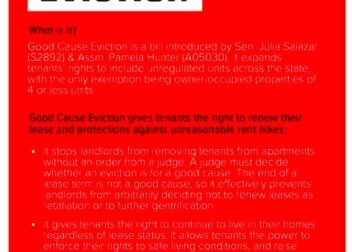Foreclosure Practices and Legal Challenges at Marinosci Law Group
Foreclosure can be a daunting experience for homeowners. It occurs when a borrower fails to make mortgage payments, leading the lender to take possession of the property. This process not only affects the homeowner’s financial situation but also impacts their emotional well-being. Understanding the foreclosure process is essential for homeowners facing this situation. In this article, we will explore various aspects of foreclosure, including the legal framework, common practices, and the role of legal professionals like Marinosci Law Group.
Understanding Foreclosure

Foreclosure is a legal process through which lenders reclaim property when borrowers default on their mortgage payments. Here’s a brief overview of how it works:
- Default: This occurs when a borrower misses a payment or fails to meet the mortgage agreement’s terms.
- Notice of Default: Once the lender realizes the borrower has defaulted, they send a formal notice to the homeowner, informing them of the missed payments.
- Foreclosure Proceedings: If the homeowner does not rectify the situation, the lender may initiate foreclosure proceedings, which can vary by state.
- Sale of the Property: The property is typically sold at a public auction to recover the outstanding mortgage balance.
Understanding this process helps homeowners prepare for what may come next.
Legal Framework Surrounding Foreclosure
The legal framework governing foreclosure varies significantly by state. It is crucial to understand these laws as they dictate the rights of both lenders and borrowers. Key points include:
- Judicial vs. Non-Judicial Foreclosure: Some states require a court process to complete foreclosure (judicial), while others allow lenders to foreclose without court involvement (non-judicial).
- Timeframes: Each state has specific timelines for each stage of the foreclosure process, affecting how quickly a lender can reclaim a property.
- Borrower Rights: Homeowners have certain rights, including the right to contest the foreclosure in court or to seek alternatives like loan modification.
Being aware of the legal framework can empower homeowners to take informed actions during foreclosure proceedings.
Common Practices in Foreclosure Proceedings
Foreclosure proceedings can be complex and vary widely based on local laws and lender practices. However, several common practices are typically observed in most foreclosure cases. Understanding these practices can help homeowners navigate the process more effectively.
- Pre-Foreclosure Communication: Before initiating foreclosure, lenders often reach out to borrowers through letters or phone calls. This is a chance for homeowners to discuss their situation and explore options.
- Formal Notices: Once a borrower is officially in default, lenders send a Notice of Default (NOD) or a similar document. This notice informs the homeowner of the missed payments and the impending foreclosure process.
- Grace Period: Many lenders allow a grace period during which the homeowner can catch up on missed payments. This varies by lender but can be crucial for homeowners trying to avoid foreclosure.
- Public Auction: If the homeowner does not remedy the situation, the property will be sold at a public auction. Details about the auction, including the date and location, are usually published in local newspapers.
Each step in the foreclosure process is designed to give homeowners opportunities to respond and take action, making it vital to stay informed and proactive.
Challenges Faced by Homeowners
Facing foreclosure is never easy, and homeowners encounter several challenges during this stressful time. A few of the most common issues include:
- Emotional Stress: The fear of losing a home can take a toll on mental health. Homeowners often feel anxious, embarrassed, or overwhelmed.
- Financial Hardship: Many homeowners experiencing foreclosure are already dealing with financial struggles, making it difficult to catch up on missed payments.
- Legal Complexity: Navigating the legal aspects of foreclosure can be confusing, especially for those unfamiliar with the process. Understanding rights and options is crucial but can be daunting.
- Potential for Scams: Unfortunately, homeowners in distress may be targeted by scammers offering false solutions, leading to further financial loss.
Recognizing these challenges is the first step toward finding solutions. Homeowners should seek support from reliable resources to help them through this tough time.
Role of Marinosci Law Group in Foreclosure Cases
Marinosci Law Group plays a vital role in assisting homeowners facing foreclosure. Their expertise can make a significant difference during this challenging period. Here’s how they can help:
- Legal Representation: The firm provides legal representation to homeowners, ensuring their rights are protected throughout the foreclosure process.
- Loan Modifications: Marinosci Law Group can assist in negotiating loan modifications, helping homeowners potentially lower their monthly payments and avoid foreclosure.
- Foreclosure Defense: They can challenge the foreclosure in court, presenting a defense on behalf of the homeowner to contest the lender’s claims.
- Guidance and Support: The firm offers guidance on navigating the legal landscape, providing homeowners with information about their rights and available options.
Having a dedicated legal team like Marinosci Law Group can alleviate some of the burdens of foreclosure, empowering homeowners to make informed decisions about their future.
Legal Options for Homeowners
Homeowners facing foreclosure often feel trapped, but it’s important to know that there are legal options available. Understanding these options can empower homeowners to take action and protect their rights. Here are some common legal avenues to consider:
- Loan Modification: This option allows homeowners to negotiate new loan terms, potentially reducing monthly payments or extending the loan period to make it more manageable.
- Forbearance Agreement: This temporary solution allows homeowners to pause or reduce their mortgage payments for a specified period while they work on improving their financial situation.
- Short Sale: If keeping the home is no longer feasible, a short sale allows homeowners to sell their property for less than the owed mortgage balance, with the lender’s approval. This option can help avoid foreclosure and lessen the impact on credit.
- Bankruptcy: Filing for bankruptcy can halt foreclosure proceedings and provide the homeowner with time to reorganize their finances. However, it’s crucial to understand the long-term implications of this option.
- Defending Against Foreclosure: Homeowners can contest the foreclosure in court, arguing against the lender’s right to foreclose based on various legal grounds.
It’s essential to consult with a legal professional to determine which option is best suited to individual circumstances. Every situation is unique, and having guidance can make all the difference.
FAQs about Foreclosure and Legal Challenges
Foreclosure can raise many questions, and having clear answers is vital for homeowners navigating this process. Here are some frequently asked questions:
- What is foreclosure? Foreclosure is a legal process where a lender takes possession of a property due to the homeowner’s failure to make mortgage payments.
- How long does foreclosure take? The timeline varies by state and individual circumstances but can take several months to over a year.
- Can I stop foreclosure once it has started? Yes, there are options such as loan modification, forbearance, or filing for bankruptcy that can help stop the process.
- What should I do if I receive a foreclosure notice? It’s essential to seek legal advice immediately and explore your options to address the situation.
- Will foreclosure affect my credit score? Yes, foreclosure can significantly impact your credit score and remain on your credit report for up to seven years.
Being informed about these questions can help homeowners make better decisions during this difficult time.
Conclusion and Final Thoughts
Facing foreclosure is undoubtedly a challenging experience, but understanding the process, legal options, and resources available can help homeowners regain control. It’s crucial to act quickly and seek professional assistance when needed. Remember, you’re not alone in this journey. With the right support from legal professionals like Marinosci Law Group, you can explore your options and work towards a more secure future. Taking proactive steps, whether through loan modifications, understanding your rights, or seeking legal representation, can lead to positive outcomes. Don’t hesitate to reach out for help, as every situation is unique and may require tailored solutions.


